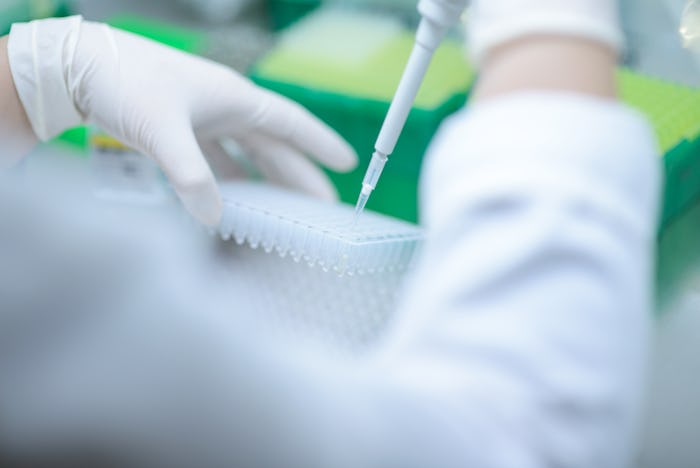News

A COVID-19 Vaccine May Be Available Sooner Than Expected As CDC Urges States To Prep
Across the world, more than 26 million people have tested positive for COVID-19. Despite months of hand washing, social distancing, and other precautions, the virus has continued to spread, leading some to conclude the best protection will be a fully-vetted vaccine. But when will a COVID-19 vaccine be available? The Centers for Disease Control and Prevention (CDC) has reportedly urged states to begin preparing for distribution as early as November of this year.
CDC Director Dr. Robert Redfield has reportedly urged governors to prepare for the distribution of a COVID-19 vaccine by Nov. 1, according to McClatchy news service. In a letter dated Aug. 27 — and obtained by McClatchy and, later, CBS News — Redfield pushed state officials to waive requirements that might hinder distribution facilities from being fully operational by the beginning of November.
"The U.S. Department of Health and Human Services and the Centers for Disease Control and Prevention (CDC) are rapidly making preparations to implement large-scale distribution of COVID-19 vaccines in the fall of 2020," CBS News reported Redfield said in the letter.
Redfield went on to say the federal government had contracted with McKesson Corporation to distribute the vaccines to state and local health departments and various vaccine providers. But in order to accomplish a vaccine distribution program on such a large scale, Redfield said McKesson would need to quickly open new distribution centers, and would thus need to obtain new permits and licenses from states.
"The normal time required to obtain these permits presents a significant barrier to the success of this urgent public health program," Redfield explained. "CDC urgently requests your assistance in expediting applications for these distribution facilities, and, if necessary, asks that you consider waiving requirements that would prevent these facilities from becoming fully operational by November 1, 2020."
In an interview with Yahoo! on Thursday, Redfield confirmed the CDC was "preparing earnestly" for what he anticipated would be reality: "that there will be one or more vaccines available for us in November, December."
But the CDC's Nov. 1 deadline has raised alarm bells among some scientists and health experts who claim such a timeframe wouldn't leave enough time for a vaccine to receive proper approval and vetting. What's more, the U.S. Food and Drug Administration Commissioner Dr. Stephen Hahn told the Financial Times earlier this week that he could issue a COVID-19 vaccine an emergency use authorization or approval before its Phase 3 trial were complete, essentially bypassing a full federal approval process. "It is up to the sponsor [vaccine developer] to apply for authorization or approval, and we make an adjudication of their application," the Financial Times reported Hahn said. "If they do that before the end of Phase Three, we may find that appropriate."
On Thursday, Health and Human Services Secretary Alex Azar pushed back on claims the government's push to have a vaccine ready by Nov. 1, two days before the 2020 presidential election, was politically motivated. "It has nothing to do with elections," CNBC reported Azar said during an appearance on CBS This Morning. "This has to do with delivering safe, effective vaccines to the American people as quickly as possible and saving people's lives. Whether it's Oct. 15, whether it's Nov. 1, whether it's Nov 15, it's all about saving lives but meeting the FDA standards of safety and efficacy."
But although the government may be ready to begin distributing a COVID-19 vaccine by Nov. 1, it remains unclear how many Americans would be willing to get one. In a CBS News poll, just 30% of respondents said they would get a COVID-19 vaccine "as soon as possible" while 50% said they would "wait to see what happens" to others and 20% said they would "never" get one.
If you think you’re showing symptoms of coronavirus, which include fever, shortness of breath, and cough, call your doctor before going to get tested. If you’re anxious about the virus’s spread in your community, visit the CDC for up-to-date information and resources, or seek out mental health support. You can find all of Romper’s parents + coronavirus coverage here.